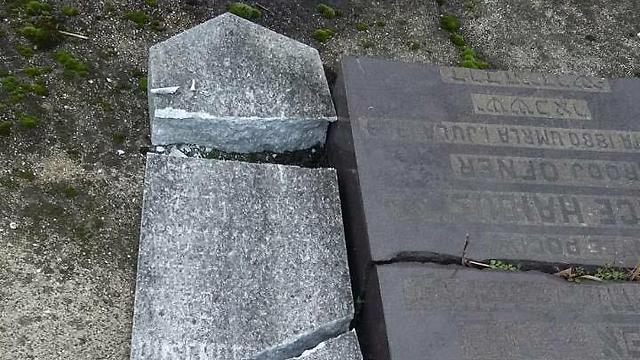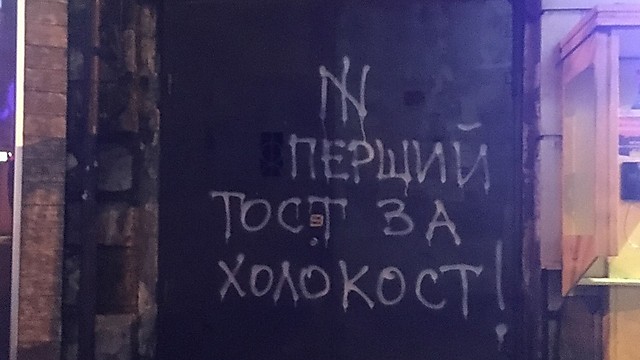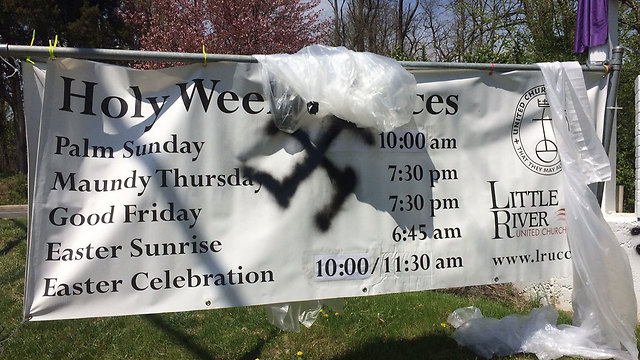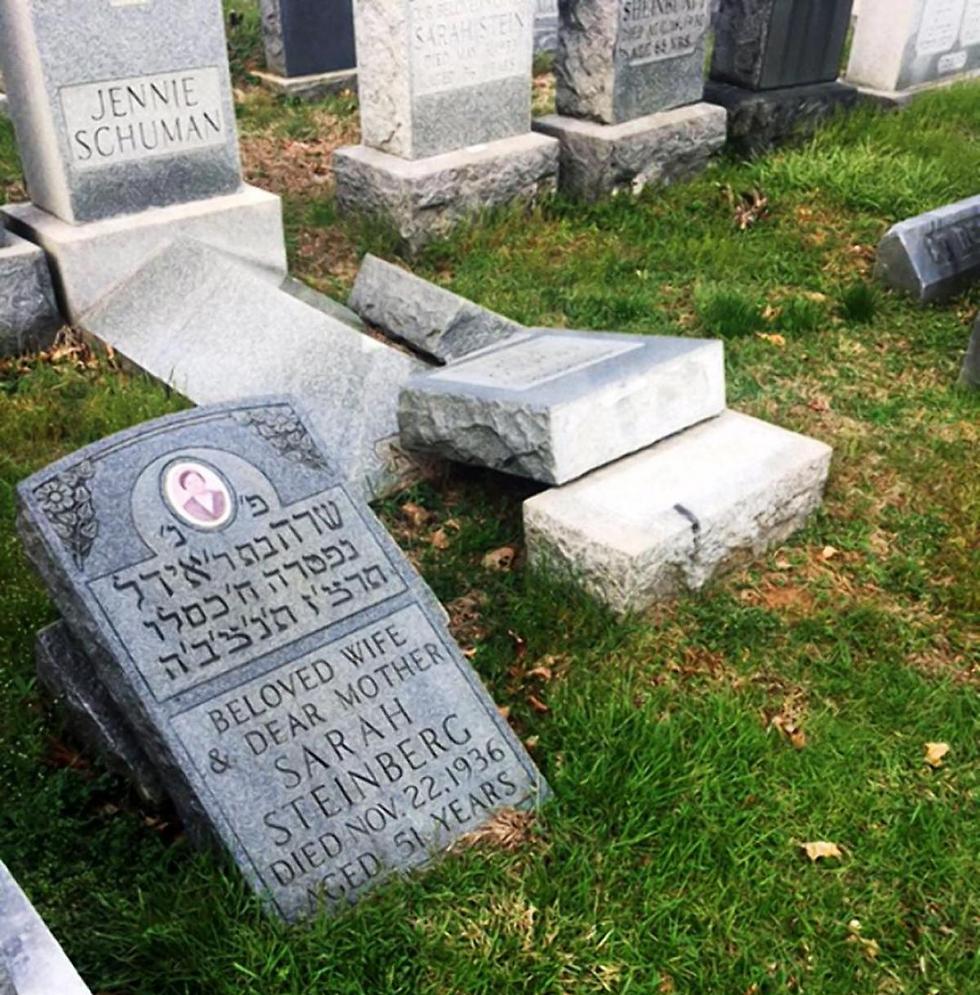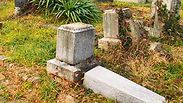

2017 Anti-Semitism Report shows hike in worldwide anti-Jewish incidents
Annual status report on worldwide anti-Semitism trends and incidents paints a bleak picture of growing hatred against Jews, especially in the western parts of Europe, which manifests as threats, anti-Zionist rhetoric and even violence.
The Ministry of Diaspora Affairs on Sunday released the 2017 Anti-Semitism Report, which indicated a substantial increase in racist incidents against Jews in Europe, especially in the western parts of the continent.
According to the report, which serves as a yearly status report on trends and incidents concerning hate crimes against Jews, the past year marked a record number of anti-Semitic incidents in Britain since 1984, when Community Security Trust (CST), a charity that aims to shield British Jews from anti-Semitism, began documenting anti-Semitic incidents in the kingdom.
2017 saw a 78 percent increase in incidents of physical violence against Jews in the UK and a 30 percent increase in all anti-Semitic incidents in the country.
The report noted that there was an increase in the number of anti-Semitic incidents in Germany, partly due to the rise of the extreme right. The refugee crisis in Germany led to the strengthening of right-wing nationalist parties, which brought with them an anti-Semitic discourse to the political system through their attempt to bolster national pride in the country's heritage and history by reducing the responsibility of the German people for the Holocaust.
Many in the country's Muslim communities also exhibited blatant anti-Semitism, as was evident in demonstrations in the country after the United States recognized Jerusalem as the capital of Israel, in which calls for the destruction of Israel were heard.
Many alarming anti-Semitic incidents also took place in France last year. Despite government action to prevent hate crimes against Jews as part of their "Fight against racism, anti-Semitism and xenophobia" and a decrease in the number of incidents, France faced serious incidents such as the murder of a Jewish young woman, Sarah Lucy Halimi.
Apart from the murder that sparked a public outcry, several kosher restaurants were set on fire in arson attacks, and an appreciable number of violent incidents against Jews were reported.
Though the country that, according to the ministry's report, saw the biggest hike in violent incidents against Jews was Ukraine, registering an increase of more than 50 percent in violent incidents against Jews.
This is happening against the backdrop of the trend of renewed nationalism in Eastern Europe and attempts to whitewash and glorify the figures of nationalist leaders and movements of the past responsible for the murder and expulsion of Jews during World War II and the period before it.
The country has reported dozens of desecrations of Jews monuments, tombs, museums and synagogues, mostly in the city of Odessa.
In May, the PEW Research Center, a nonpartisan American think tank based in the US, conducted a study of 2,000 residents in each of Central and Eastern Europe's 18 countries.
The study found that 20 percent of the respondents did not want Jews in their country and 30 percent did not want Jews as neighbors. In addition, 22 percent of Romania's citizens and 18 percent of Polish citizens were interested in denying the right of Jews to citizenship in their country.
The report also presents likewise worrisome occurrences in the United States.
According to the report, the alt-right, which rose to prominence in the march in Charlottesville in which demonstrators were heard chanting "Jews will not replace us," gained strength during President Donald Trump's fist year in office.
There has also been an increase in anti-Jewish and anti-Israeli sentiments among radical leftist movements, especially on college campuses, which continued with anti-Israeli propaganda that caused Jewish students to feel insecure and afraid to express any pro-Israel or Zionist views.
The rising threat of refugees and the alt-right
The report noted that the increasing population of refugees and immigrants, who arrived in Europe in recent years, is becoming a significant risk factor for Jewish communities.
According to surveys conducted, more than 50 percent of the refugees in Western Europe, most of them Muslims, hold anti-Semitic views. Following Trump's declaration on Jerusalem, calls for "Death to Israel" were chanted and Israeli flags were burned in several European capitals for the first time in years.
Extreme right-wing parties in Western Europe have also scored exceptional achievements in terms of public support. Campaigns by alt-right parties in France, Britain, and Germany expanded the proliferation of anti-Semitism into the center of political discourse, which was reflected in an increase in anti-Semitic rhetoric by government officials.
The report also said that Islamist anti-Semitism continues to be the main and most dangerous threat to Jewish communities, and that it inspired Sarah Halimi's murder in Paris.
At the same time, incitement from extremist Islamic states and institutions continued unabated this year and gave religious and normative legitimacy to attacks on Jews.
Another rising threat to Jews worldwide is what the report refers to as the "new anti-Semitism"—Anti Jewish sentiment hid under a guise of anti-Zionism or anti-Israeli rhetoric.
The report stated that international institutions such as the United Nations and UNESCO continued to present double standards and attempts to diminish the connection of the Jewish people to the Land of Israel, the Temple Mount, Jerusalem and the Tomb of the Patriarchs.
It further claimed that there is ongoing anti-Semitic incitement by the Palestinian Authority: Systematic use of religious and other anti-Semitic narratives to foster hatred of Israelis and Jews among its citizens.
As an example, it mentions the controversial speech of Palestinian Authority President Mahmoud Abbas, who said during a meeting of the PLO's Central Council in Ramallah that "Israel is a colonial project that has nothing to do with the Jews."

Meanwhile, a comprehensive survey conducted by the World Zionist Organization ahead of the International Holocaust Remembrance Day revealed that 83 percent of those surveyed reported that they were exposed to anti-Semitism on the Internet and on social media, 59 percent believe that the politicians in their country are anti-Semitic to a certain extent and 51 percent of respondents said they were afraid to wear Jewish symbols in public.
Jacob Haguel, deputy chairman of the World Zionist Organization, commented that the "worrying results of the survey prove once again that anti-Semitism does not disappear from the world, and that all necessary measures must be taken into consideration (in battling it).
The writing is, and always was, on the wall—Diaspora Jews suffer from manifestations of anti-Semitism, many of them are afraid to demonstrate their Jewishness, believe that the politicians in their country are anti-Semitic and do not report incidents of anti-Semitism that have become routine."
Minister of Diaspora Affairs Naftali Bennett said in response to the data, "Anti-Semitism is the dangerous fuel that has forever inflamed our enemies.
"We must make sure that every Jew anywhere in the world can live his life safely and proudly. We must act in every way we can to combat modern anti-Semitism in order to ensure the security of the Jewish people, in Israel and in the Diaspora."














